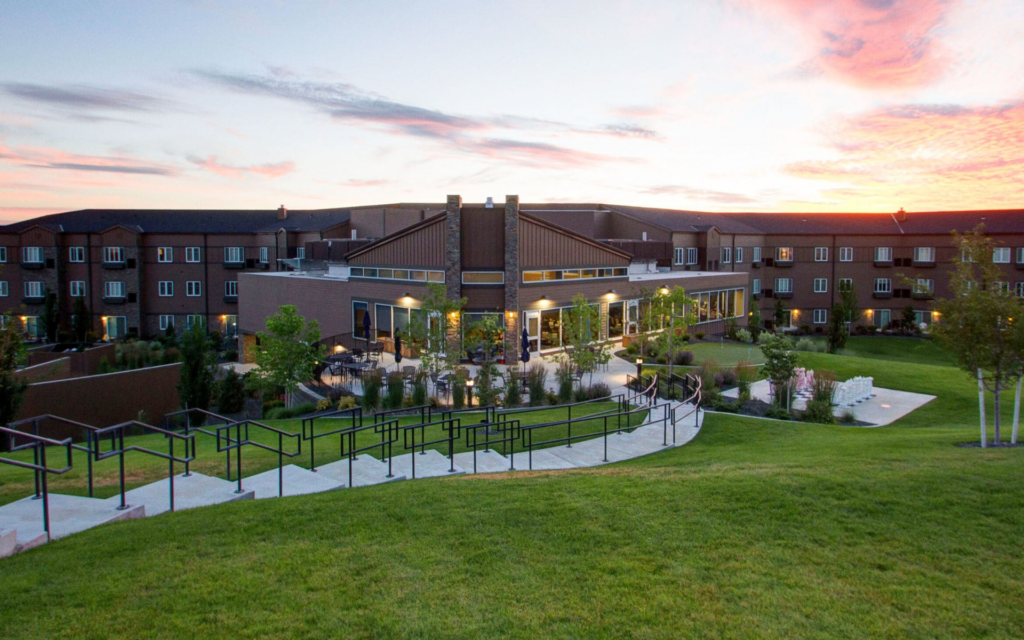Cover photo features Ciel of Tri-Cities | Senior Living Community in Kennewick, WA – a PMD Alliance Certified provider
Celebrating National Assisted Living Week
National Assisted Living Week is always the second week of September and was established in 1995 to celebrate residents, staff, volunteers, and families – recognizing their dedication and contributions to long-term care. Transitioning to assisted living can be a difficult and painful experience for both the diagnosed and their loved ones, but there are many ways professional care providers can actually improve the quality of life of everyone involved.
We’re fortunate to train and collaborate with many such professionals through Certified Parkinson Disease Care™ (CPDC™), so, in celebration of the hard work and expertise of our CPDC Advocates, here are 10 ways assisted living facilities provide Parkinson’s care-aligned practices that support the person with Parkinson’s and their loved ones.[/vc_column_text][vc_column_text]
1 – Specialized Nutrition Support
Assisted living communities often provide dietitian-approved meals tailored to Parkinson’s, ensuring balanced nutrition that supports medication effectiveness and overall health
2 – Fall Prevention Programs
Many facilities offer fall-prevention initiatives, including exercise classes to strengthen balance and mobility, plus staff trained in safe transfer techniques.
3 – Consistent Daily Routines
Structured schedules for meals, medications, and activities help people with Parkinson’s manage symptoms, reduce stress, and maintain independence.
4 – Enhanced Safety & Accessibility
Communities are designed with grab bars, wide hallways, and non-slip flooring, creating safer environments for those with mobility challenges.
5 – Support with Daily Living & Medication
Staff assist residents with dressing, bathing, eating, and medication management—critical for Parkinson’s symptom control.
6 – Access to Therapy & Holistic Care
On-site physical, occupational, and speech therapies, along with activities like yoga and Tai Chi, promote strength, flexibility, and well-being.
7 – Social Engagement & Activities
Group activities such as art, gardening, and book clubs foster social connection, reduce isolation, and support mental health.
8 – Peace of Mind for Families
Families can focus on meaningful visits while knowing their loved one is cared for by trained professionals.
9 – Individualized Care Planning
Personalized care plans are adapted to each resident’s stage of Parkinson’s, involving both families and healthcare providers.
10 – Specialized Staff Training
Assisted living facilities that invest in CPDC™ training for staff ensure they understand motor and non-motor symptoms and how best to support residents.


